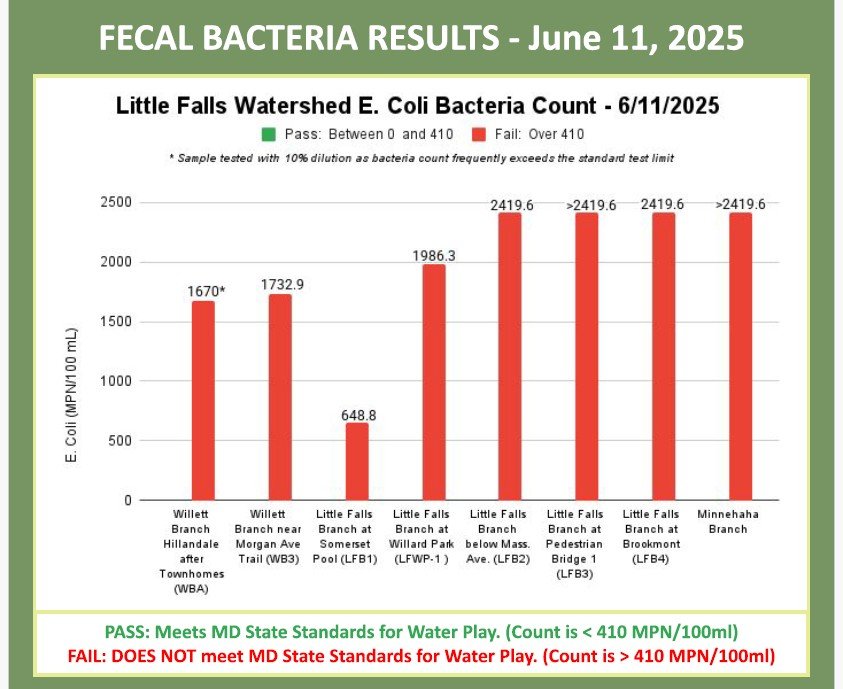It’s the second week of our summer fecal bacteria testing program and all three creeks in the watershed have failed to meet the MD Standards for Safe Water Play. This is the second week in a row that the sites on the Willett Branch have failed; The Little Falls site below Mass Avenue failed again. And the Minnehaha creek site has shown serious fecal pollution for the past two weeks. This is the first year that we have tested the Minnehaha Branch.
We started the fecal monitoring program in 2020 to answer the frequent question “are the creeks safe to play in”. As you can’t smell or see e.coli, testing for fecal bacteria is the best way to find out. We test eight sites on three creeks - two sites on the Willett Branch, five sites on the Little Falls Branch, and new for this year, one site on the Minnehaha Branch at Glen Echo.
Willet Branch still Has High Numbers
Last year, one source of fecal pollution on the Willett Branch was identified and fixed, but we are still seeing very high numbers in this creek. The toilets at Hyatt Hotel in Bethesda were found to be plumbed into the storm drain system instead of the sewer system, so the raw sewage was flowing into the creek instead of being sent to the WSSC waste water treatment plant for processing. It was our hope that with this illicit hook-up fixed, we would see passing numbers in this creek. Maybe next week? We are still testing and reporting our data to the Montgomery County DEP.
Fecal Bacteria Problem pervasive across the watershed
Our testing program has shown that most weeks, the creeks in the watershed are not safe for swimming. The Maryland state standard threshold for Safe Water play is 410 MPN/100 ml. In 2024, the fecal bacteria levels well at most sites were above that number regardless of the amount of rain experienced.
Our results are reported to Montgomery County elected officials, the County DEP, and shared with residents via Nextdoor, neighborhood listservs, theSwimGuide.org, and posted on our website.
To learn more about our program and see results, visit www.LFWA.org/bacteria.

